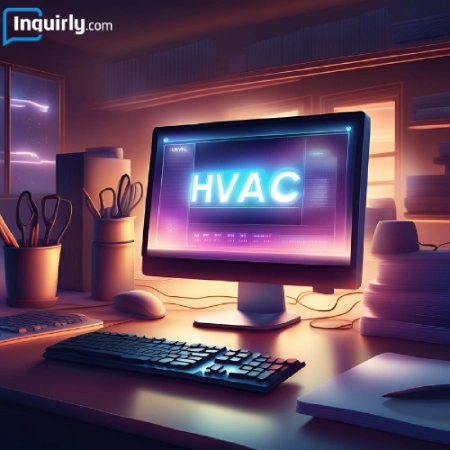If you’re a contractor looking for steady work, partnering with insurance companies can be a great option. Restoration work from insurance companies involves repairing and restoring homes or businesses that have been damaged by disasters. These disasters could be natural events, like hurricanes, floods, or wildfires, or even accidents like a kitchen fire.
When these events occur, homeowners file a claim with their insurance company to cover the costs of repairs. After the claim is reviewed and approved, the insurance company looks for contractors to handle the job. As a contractor, this gives you the chance to get hired by the insurance company to fix the damage.
But working with insurance companies isn’t exactly like working with regular customers. Insurance companies have specific requirements, procedures, and standards that contractors must meet.
By positioning yourself as a reliable, certified contractor who understands how to work with insurance companies, you can open the door to a steady stream of projects.
But how do you break into this field? In this guide, we’ll explain how you can get restoration work from insurance companies and what steps you need to take to succeed.
5 Steps to Get Restoration Work from Insurance Companies
1. Get Certified and Trained

The first step to becoming a trusted contractor for insurance companies is getting the right certifications. Insurance companies want to work with professionals who meet high industry standards. Certifications such as the IICRC (Institute of Inspection, Cleaning, and Restoration Certification) are essential for gaining credibility. These certifications show that you know how to handle complicated restoration jobs, such as water damage, mold removal, or fire damage cleanup.
Additionally, getting specialized training in areas like water mitigation, mold remediation, or fire damage restoration can give you an edge over other contractors. Some insurance companies even require specific training or certifications to make sure you’re qualified for the work.
2. Build Strong Relationships with Insurance Adjusters

One of the most important connections you can make is with insurance adjusters. Adjusters are the people sent by insurance companies to evaluate the damage, decide what repairs are needed, and approve the claims. Adjusters often have a say in which contractors are selected for the job, so building good relationships with them can lead to more referrals.
How do you build these relationships?
Start by networking at industry events, joining local insurance groups, and being proactive about reaching out to adjusters. Introduce yourself, provide your business details, and demonstrate that you understand their priorities, such as fast response times, accurate estimates, and quality work. Over time, these connections can pay off in the form of job referrals.
3. Stay Compliant with Industry Regulations and Licensing

Insurance companies are careful when choosing contractors and usually require that you have current licenses and insurance. This includes contractor licenses, liability insurance, and workers’ compensation coverage.
Having the right licenses and insurance shows the insurance company that you are a responsible and professional contractor. Before approaching any insurance company, be sure to review your state or local regulations to confirm that all your paperwork is current and in order.
4. Use Estimating Software Familiar to Insurance Companies

Insurance companies often rely on specialized software to process claims and approve contractor estimates. One of the most commonly used tools is Xactimate, a software that helps contractors create detailed, standardized estimates for restoration work.
Becoming proficient in Xactimate (or similar software) is important because it guarantees that your estimates are compatible with what insurance adjusters are used to seeing. By giving the insurance company a clear and detailed breakdown of the costs, it makes it easier for them to accept your estimate, which means you can start the job sooner.
5. Advertise Your 24/7 Capabilities

Make sure to promote your quick response times, use of advanced technology, and 24/7 availability in all your marketing materials. These are key things that make your business more attractive to insurance companies, as they need reliable contractors who can act fast during emergencies.
You should also advertise your emergency services on platforms that insurance professionals use, like LinkedIn, industry associations, and at local insurance events. Insurance adjusters are always looking for dependable contractors to handle urgent jobs, and being visible on these platforms will help them remember you when a disaster strikes.
What to Consider When Working with Insurance Companies
When partnering with insurance companies for restoration work, there are some additional things to keep in mind:
Adapting to Their Processes – Every insurance company has its own set of procedures, from submitting estimates to handling claim approvals. Be prepared to follow their guidelines closely. This might include using specific forms, tools, or documentation methods. Following these processes ensures smoother communication and faster approvals, making you easier to work with from their perspective.
Handling Payment Delays – Insurance company payments often take longer than direct customer transactions. Be prepared for longer payout cycles, which can sometimes stretch into weeks or months depending on the complexity of the claim. Managing your cash flow effectively is essential so that your business isn’t impacted by these delays.
Balancing the Homeowner and the Insurance Company – Although insurance companies are your main clients, it’s essential to keep the homeowner in the loop. Homeowners may feel stressed or frustrated during the restoration process, especially if their claims are delayed or partially denied. Maintaining clear communication with both the insurance company and the homeowner is key to keeping everyone satisfied.
Q&A
Q: How long does it take to get paid by insurance companies?
A: Payment times can vary depending on the complexity of the job and the approval process. Typically, contractors receive payment once the work is completed and inspected. This can take anywhere from a few weeks to a couple of months.
Q: What happens if the insurance claim is denied?
A: If an insurance claim is denied, the contractor usually won’t receive work through the insurance company. However, in some cases, the homeowner may still decide to hire you directly to complete the repairs. Always communicate clearly with the homeowner about their options.
Q: Do I need special insurance to work with insurance companies?
A: Yes, most insurance companies require contractors to have specific types of insurance, such as general liability insurance and workers’ compensation, before they can take on a job. This protects both the contractor and the insurance company from potential legal issues during the project.
Conclusion
Working with insurance companies offers a reliable path to consistent restoration jobs, but it also requires patience and a professional approach. It’s important to understand their systems and be flexible when dealing with claims. While you might face delays or changes in scope, staying organized and maintaining clear communication will help you navigate these challenges. Over time, proving that you can handle the demands of insurance-related work can lead to steady growth for your business.



